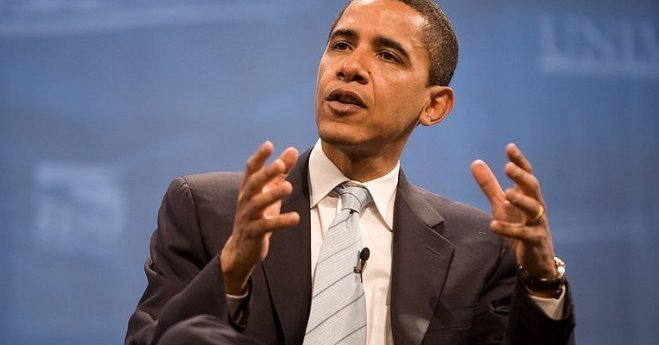The image that has emerged is that of the United States’ clear refusal to withdraw into itself, into isolationism, and its willingness to play a leading role in global challenges, regarded as “opportunities” for the civil and economic growth of the country.
President Obama confirms his commitment to withdrawing all remaining U.S. troops from Afghanistan in 2013, while ensuring his continued support of Afghan security forces.
He has committed himself to fighting the spread of weapons of mass destruction throughout the world with the weapons of diplomacy, and to being a beacon for all those fighting for freedom in this moment of historic change.
To radically combat terrorism, President Obama intends to act on its root causes, committing the United States, together with its allies, to eradicating extreme poverty in the next two decades, enhancing the role of women, offering young people new job and educational opportunities, helping local communities to ensure nutrition and health to their citizens, protecting the world’s children against the risk of premature death and creating the conditions for an AIDS-free generation.
His proposal to complete negotiations for a Trans Pacific Partnership is accompanied by his new proposal to create a Transatlantic Trade and Investment Partnership with the European Union in order to increase trade across the Atlantic as well as to jointly address aid policy for the development of countries in difficulty.
This global responsibility towards the rest of the world is further affirmed by John Kerry, who includes “the dramatic climate change, population growth, the recognition of human rights and global security and stability” among the common challenges of developed countries.
Among his many reflections, I find particularly significant those in which Kerry:
– recalls the implementation of the Marshall Plan after World War II and suggests that the United States adopts this same vision by assisting the developing countries whose conditions are similar to those of the war-torn Western European states;
– affirms the topicality of the UN Millennium Development Goals, notes that the federal budget allocates only 1% to development aid and declares that his dream is to increase it up to 10% of the federal budget (a target which is currently unrealistic, given the “Sequester” of the national budget);
– supports the need to tackle the global climate challenge together with other polluter states, which demonstrates a more mature awareness of the global scope of environmental challenges and a more effective and realistic approach to the problems of “global governance”.
Regarding global environmental problems, an initiative launched a few years ago by the UN called UN Sustainable Energy for All Initiative (SE4AII) is achieving considerable success. It has three objectives: to allow universal access to modern energy resources, to double the proportion of energy produced in the world from renewable energy resources and to double the rate of increase in energy efficiency by 2030.
More than 50 developed countries are working to achieve the three above-mentioned objectives in the belief that the eradication of poverty, sustainable development and the phasing out of fossil fuels all go hand in hand.
However, a global and binding agreement among polluter countries on the control of greenhouse gas emissions is still necessary and unavoidable.
The basis of this need can be found, among other things, in famous British historian and political scientist Eric Hobsbawm’s reflections on the “asymmetry of globalisation” in an interview given a few months before his death, in which he stated: “Certain things are globalised, others are superglobalised and others have not been globalised. And among those that have not been globalised one is politics. The institutions that decide on policy are the territorial States. This leaves open the question of how to deal with global problems without a global State, without a global unity. And this concerns not only the economy but also the greatest challenge of the present, the environmental one”, based on the exhaustion and pollution of natural resources such as water, air and soil.
Federalism is also a theory and a method that provides additional opportunities both to understand the complexity of the globalised world as well as global challenges, and to face them through democratic procedures, at the more appropriate level of “government” on a case-by-case basis and in the interests of all the citizens of the world.

Follow the comments: |
|
